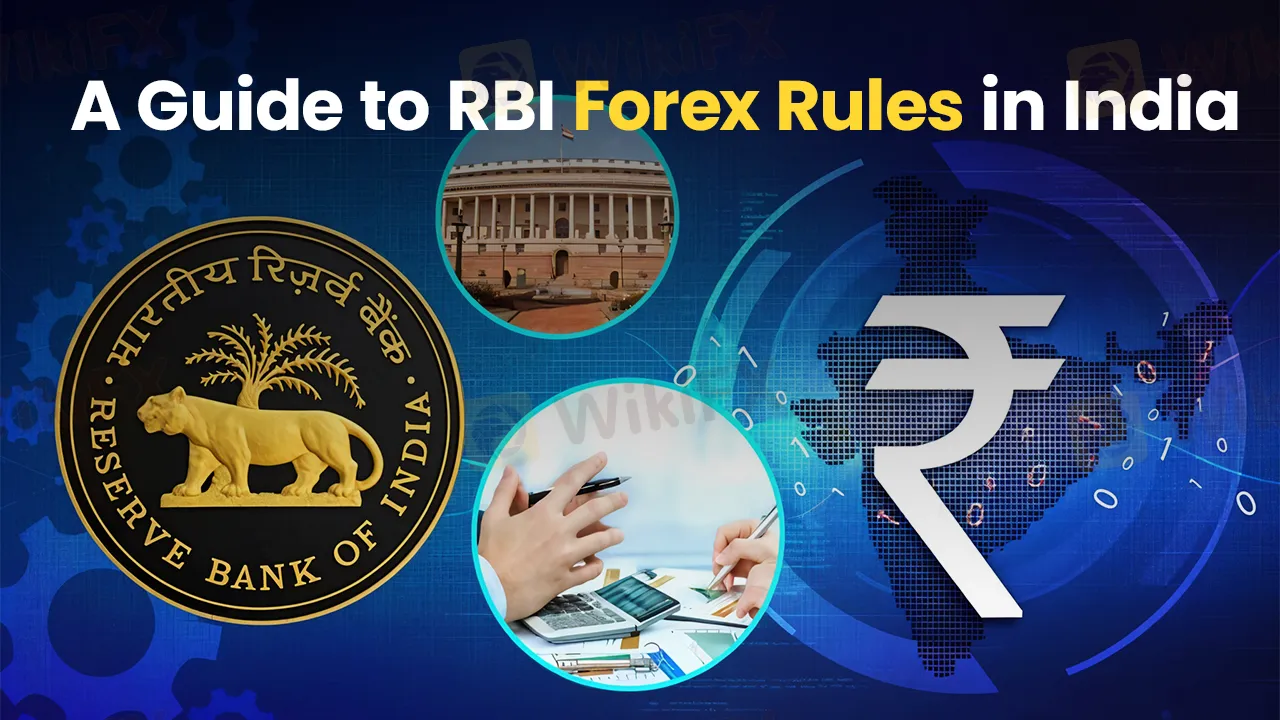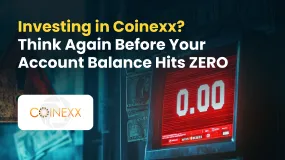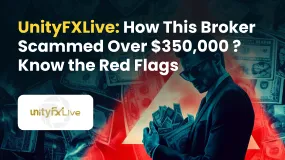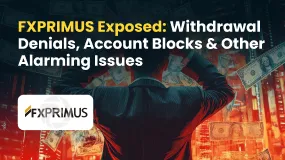简体中文
繁體中文
English
Pусский
日本語
ภาษาไทย
Tiếng Việt
Bahasa Indonesia
Español
हिन्दी
Filippiiniläinen
Français
Deutsch
Português
Türkçe
한국어
العربية
A Guide to RBI Forex Rules in India
Abstract:To ensure transparency, the Reserve Bank of India (RBI), which regulates the country’s foreign exchange market, places certain rules on buying and selling currencies and other transactions.

Indias foreign exchange market is $60 billion strong and counting. The growing participation from retail and institutional traders, brokers, investment funds, banks, and commercial enterprises resulted in almost doubling the market size over four years from 2020 to 2024.
While that‘s remarkable, there are cases of scams that somewhat dampen investors’ confidence. To ensure transparency, the Reserve Bank of India (RBI), which regulates the countrys foreign exchange market, places certain rules on buying and selling currencies and other transactions.
So, if you are new to Indias foreign exchange market, you should be aware of RBI forex rules.
Lets first check the need for foreign currencies before looking at the rules.
The Need for Foreign Currencies
You need foreign currencies when making international transfers or traveling overseas. The RBI governs forex transactions in accordance with the Foreign Exchange Management Act (FEMA) regulations.
Who are Authorized Dealers as Per RBI Forex Rules?
Its important to engage in forex trading through authorized dealers only. The RBI, on its website, has mentioned both authorized and unauthorized forex brokers. Trading through authorized brokers can prevent you from unwanted forex scams.
Also, if you want to invest in currency derivatives such as futures and options, you can do it on domestic stock exchanges such as the Bombay Stock Exchange (BSE), the National Stock Exchange (NSE), the Metropolitan Exchange of India (MSE), or the Securities Exchange Board of India (SEBI)-approved brokers.
RBI Forex Rules for Outward Remittance
Outward remittances mean transferring funds by resident Indians to recipients in another country to meet various needs such as travel, education, or medical expenses overseas. This type of remittance must meet the guidelines mentioned under the Liberalized Remittance Scheme (LRS).
The LRS rules stipulate that resident Indians can transfer a maximum of US$ 25,000 in a calendar year for permissible capital or current account transactions or both.
According to RBI forex rules for outward remittance, the central bank has approved AD Banks (Authorized Dealer -1) and Money Changers with AD-II category license (Authorized Dealer - II) to facilitate fund transfers overseas.
The RBI guidelines for outward remittance further stipulate fund transfers as per the approved purposes and upon submitting the Know Your Customer (KYC) documents.
Currency Exchange Rules to Follow
- You need to submit the required KYC documents when buying foreign currencies.
- Forex purchases may be allowed only up to 60 days before the travel date mentioned on the air ticket.
- You can purchase foreign exchange of up to US$ 25,000 or its equivalent in any currency. You can buy cash up to US$ 2,000 out of this amount and have the remaining balance on a Forex card or through travelers' cheques for the trip.
- As per RBI forex rules, total cash or online payments must not exceed INR 50,000.
RBI Forex Rules on Selling Foreign Currencies
Following these rules makes you eligible to sell foreign currencies.
- Submitting the KYC documents is a must for selling foreign currencies. As per the forex rules, you need to surrender the unspent forex amount in cash and travellers cheques within 180 days of your return to India. Further, you can keep forex up to US$ 2,000 only or its equivalent in other currencies, in travelers' cheques or foreign currency notes.
- RBI forex rules allow you to bring back any forex amount to India. However, if you possess currency notes exceeding US$ 5,000, or travelers' cheques or currency notes above US$ 10,000, you need to declare these in a Currency Declaration Form (CDF).
- If you get an amount below INR 50,000 on selling the foreign currency, the money changer or bank can make cash, cheque or online transfers to your bank account using the National Electronic Funds Transfer (NEFT). In case you receive an amount exceeding INR 50,000, you can get it via Real Time Gross Settlement (RTGS) or NEFT.
Frequently Asked Questions (FAQs)
Can resident Individuals undertake forex transactions?
Yes, resident individuals can undertake foreign exchange transactions as per the RBI forex rules. However, the RBI allows this with authorized persons and for approved purposes in line with the FEMA regulations.
Who are authorized individuals?
Authorized individuals are the entities allowed by the RBI to deal in foreign currencies. They can be a money changer, authorized dealer, offshore banking unit, or any other individual registered under Sub-Section (1) of Section 10 of FEMA.
Can resident individuals undertake forex transactions via the Internet or electronic trading portals?
Yes, they can, but only on electronic trading platforms (ETPs) authorized by the RBI for this purpose. You can also do this on recognized stock exchanges such as the BSE, NSE, and MSEI.
Can I check the list of authorized and unauthorized forex dealers on the RBI‘s website?
Yes, you can check the list of both authorized and unauthorized forex dealers on the RBI’s website.
Disclaimer:
The views in this article only represent the author's personal views, and do not constitute investment advice on this platform. This platform does not guarantee the accuracy, completeness and timeliness of the information in the article, and will not be liable for any loss caused by the use of or reliance on the information in the article.
Read more

Investing in Coinexx? Think Again Before Your Account Balance Hits ZERO
Coinexx has emerged as a nightmare for traders who once saw potential and profit in its platform. The problems lie in its lack of transparency, which has left many investors with a ZERO balance. Scamming investors by employing fraudulent tactics and introducing bogus trading rules is increasingly becoming its status symbol. The endless negative reviews of this scam broker are trending on various platforms. To expose the troubling investor experiences, we’ve compiled sharp complaints from verified users of Coinexx. Read on!

UnityFXLive: How This Broker Scammed Over $350,000 ? Know the Red Flags
On August 4, 2025 Indian police arrested two men for running a fake forex trading scam under the name UnityFXLive.com. The suspects were caught operating from a rented office in Goregaon, Mumbai. During questioning, they revealed the name of a third person who is believed to be the mastermind behind the scam. He is currently on the run. The scammers promised people high returns on forex investments, but instead of doing real trading, they stole the money using fake online platforms.

FXPRIMUS Exposed: Withdrawal Denials, Account Blocks & Other Alarming Issues
Have your fund withdrawal applications been constantly denied by FXPRIMUS? Does the forex broker inappropriately block your trading account? Are your deposits disappearing without reaching your trading account? There’s something seriously wrong with this forex broker, whose track record keeps getting worse by the day. Many traders have expressed their anguish on several broker review platforms. While reading those reviews, we could not resist exposing this broker. Check out how traders have criticized FXPRIMUS for its illicit acts.

FXPRIMUS Exposed: Withdrawal Denials, Account Blocks & Other Alarming Issues
Have your fund withdrawal applications been constantly denied by FXPRIMUS? Does the forex broker inappropriately block your trading account? Are your deposits disappearing without reaching your trading account? There’s something seriously wrong with this forex broker, whose track record keeps getting worse by the day. Many traders have expressed their anguish on several broker review platforms. While reading those reviews, we could not resist exposing this broker. Check out how traders have criticized FXPRIMUS for its illicit acts.
WikiFX Broker
Latest News
Investment Scam Alert: FCA Identifies 15 Scam Brokers
Exploring Laxmii Forex: Kharadi's Financial Hub
BaFin Issues Consumer Alerts Against Unauthorised Platforms
Retired Man Loses Life Savings to ‘Sister Duo’ in Forex Scam
Telegram vs WhatsApp vs Discord: Which Platform Is Best for Forex Signals?
TradexMarkets: 5 Troubling Signs You Shouldn’t Ignore
A Guide to Buy Stop vs Buy Limit in Forex Trading
SEC Implements New Rules for Crypto-Asset Service Providers
Binance Users Convert Crypto and Withdraw Instantly to Mastercard
Forex Swaps Explained in 5 Minutes – Everything You Need to Know
Currency Calculator


